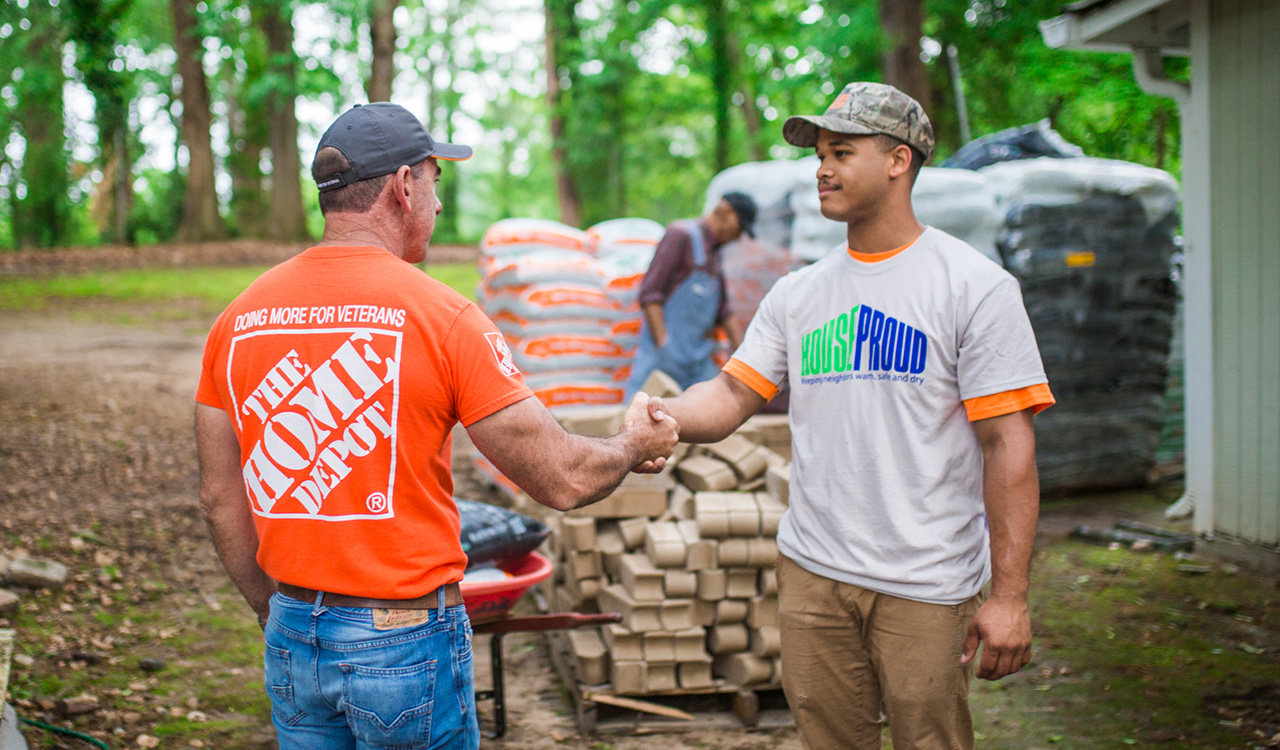Millennials and Gen Z make up around half of the global workforce. Many are frontline retail workers whose jobs were impacted during the pandemic. Whether they were laid off, suffered reduced hours, or had to switch from a nonessential retail job (such as cosmetics sales) to an essential one (such as stocking shelves at an Amazon warehouse), there is nary a next-gen whose career trajectory wasn’t deeply impacted by the last year of lockdowns.
Job Insecurity Slows Frontline Employee Loyalty
The pandemic showed frontline retail workers the precariousness of their positions and the illusion of job security. Gen Z was once known for company loyalty, but retailers will have to work harder for the loyalty that they once took for granted. IBM recently reported that 25 percent of workers plan to switch jobs in 2021. Of the one in five workers who switched jobs last year, 33 percent were Gen Z and 25 percent were millennials.
[callout]Employee training gives retail workers the ability to differentiate themselves through their product acumen and knowledge of the company. It creates a personal investment in the product being sold, as well as the company as a whole.[/callout]
Yet frontline employees remain integral to a company’s success. Susan Lamoreaux, Managing Director at Solomon Page, a staffing and executing search solutions company, says, “Retailers have always been brands\’ primary ambassadors! This is exactly why apparel brands offer company discounts to their employees, or why beauty brands spend so much money and time on training, product samples, and try-ons.”
But a distinct lack of job security isn’t the only thing deterring potential retail employees from entering the field. More is expected of frontline workers than ever before. They are expected to put their resources into building a physical and digital brand presence, despite the fact that they could lose their jobs at any moment.
Fortunately, it is possible for retailers to attract and retain next-gen employees. Let’s examine what will be expected of the retail workforce of the future, what they will take into consideration when looking for a new position, and how retailers can create a work environment that’s secure enough to earn their loyalty.
A New World Calls for a New Skillset
As the retail industry continues to evolve, some traditional attributes remain essential for all retail employees. Brenda Malloy, President at Herbert Mines Associates, says that retail workers still need to have “an innate interest and desire to ‘serve’ coupled with true empathy for the customer.”
The retail industry contains a wide variety of positions, which require a diverse array of talents. When it comes to retail leadership, however, Malloy looks for candidates that possess talent in six key arenas:
- Digitally savviness
- Customer-centricity/empathy
- An enterprise mindset
- Collaborative/curious/agile/fluid
- Strategic/execution orientation
- Value data/analytics
Susan Lamoreaux adds that clienteling will continue to be important in the stores of the future, “especially in the luxury segment of the market. For years, luxury brands have had their retail associates get to know clients on a personal level and customize their shopping experiences, accordingly, including invitations to curated personal appointments based on their styles, sizes, best colors, and tastes. Salespeople would cultivate client bases over years, and retailers would compete fiercely for these talented individuals and their accompanying books of business.
Lamoreaux cautions, however, that in the past year, many boutique stores that operated on the in-person clienteling model were shut for months. “And even after nonessential retail reopened, most of these stores are not well suited to social distancing.”
“Regardless,” Lamoreaux continues, “it is clear that future retail workers will need a basic command of technology. The beauty industry, for example, has been using technology to create virtual try-ons for lipstick and other color products. This does not eliminate the need for sales associates, but it does require that those associates know how to operate those virtual tools.”
Malloy says that retail is all about the delicate balance of interpreting the art and science or creativity of the brand expression and data’ through the target customers’ lens. “As technology and data science has evolved as a capability or toolset, it is providing more insights, which is immensely helpful, but this is not at the expense of brand.”
But as customers return to physical stores, traditional clienteling will take place on digital channels. This will enable retailers to meet the demand for individual appointments for in-store visits. Amanda O\’Sullivan, VP of Recruiting at 24 Seven Talent, says that when she walks around the streets of Manhattan, she sees “lines outside the door at Nike and a new way of shopping for luxury that is tailored to appointment-based shopping.”
However, O’ Sullivan adds that the need for speed will also become more prevalent “as retailers’ online presence expands.” As a negative example of this, O’Sullivan says, “I called the Hermès store and received a call back three days later to confirm an in-store appointment.”
Training Creates Upward Mobility
A college education alone doesn’t give prospective retail employees the product or industry knowledge, or value identification necessary to excel in their role over the long term. Lamoreaux says that, in the past, many of the leading department stores had highly competitive training programs.
“Successful applicants would start training immediately after college graduation and would rotate through buying, planning, allocation, merchandising, and sales. These programs (and the mentorship recent graduates received through them) were highly effective, and many specialty stores (like Ann Taylor, Abercrombie, and the Gap) created similar programs.”
She adds that, unfortunately, many brands have either eliminated or reduced these programs during this period of retail store retraction. “Training programs create a built-in crop of smart, hardworking graduates with diverse educational backgrounds who learn the business from the ground up. Investing in this training is still viable and valuable to a retailer.”
One thing that’s consistent among next-gen employees is that advancement opportunities are key to employee retention. Companies rated highly in employee training see 53 percent lower performance erosion over time. Employee training gives retail workers the ability to differentiate themselves through their product acumen and knowledge of the company. It creates a personal investment in the product being sold, as well as the company as a whole.
O\’Sullivan firmly believes product training will be a key driver when stores reopen. “What is different from shopping online vs. in-store, aside from the obvious (touch, see and smell)? There will be new technologies and systems teams will need to be trained on (sizing technologies, ways to try on without peeking your head out of the curtain),” O’Sullivan says. “Improved training on customer service, process and client experience.”
Retail Engineering
O’Sullivan lists Chanel Atelier (try on, buy in store online and product is shipped to your home) and Reformation (shopping based on technology once you’re in the dressing room) as examples of brands strategically utilizing new technologies. “They all encompass a new wave of retail,” she says. “Albeit a bit ahead of their time, it’s an entirely different experience from your traditional retail experience.”
Lamoreaux says that a lot of employee training post-COVID will end up being unique to the specific brand and store experience. “Take curbside pickup, for example. The practice has proven very successful and will probably continue to be part of stores\’ portfolio of offerings — it\’s just too convenient for their loyal customers.”
On the other hand, Lamoreaux cautions that curbside pickup can also reduce opportunities for brands to incentivize impulse shopping. But she has a solution: “Some companies are now experimenting with using experienced salespeople to bring out curbside pickups. This same salesperson can then take the opportunity to upsell by suggesting coordinating items to complete a look.”
Flexible Hours Are the New Gold Standard
Employees have had a taste of remote work during the pandemic and few will willingly give that up when life resumes. O’ Sullivan says that “The need for flexible staffing is at an all-time high, especially as retail is reopening, with pop-up locations and also test markets.
“At 24 Seven, we have seen more companies ask for what I like to call, ‘part-time-plus’ staff, AKA 30-hours a week. Additionally, an increase for customer service professionals with language capabilities. There has been a need for front of the house positions as Covid testing became readily available and social distancing has continued/will continue to be the norm.”
Susan Lamoreaux agrees that the need for flexible staffing has increased during Covid-19. She highlights the opportunity for digital event hosting as a desirable result of lockdown living. “While people used to need to move to urban hubs like New York City to get a job with a desirable fashion retailer, online retailers are changing the marketplace. They are actively replicating the in-person shopping experience through strategies like livestreamed virtual shopping events or online stylist consultations.
“It goes without saying that the people working these consultations or events can be based anywhere. This flexibility has the potential to remove a huge amount of the financial pressure on young retailers, who would ordinarily have to pay some of the highest costs of living in the country just to have the opportunity to work.”
Looking Forward to a Reopened World
The next generation of retail workers expect employers to give them the proper training to enable them to differentiate themselves. They also have higher expectations for diversity, equity, and inclusion (DEI) than their predecessors. An employer’s sustainability practices drive long-term retention as employees need to identify with a brand’s values to feel lasting loyalty to the company. The pandemic accelerated next-gen’s need to identify with a brand’s position on a range of social and environmental issues. In a 2020 Millennial and Gen Z study by Deloitte, almost three-fourths of those surveyed said Covid has made them “more sympathetic toward others’ needs,” and they “intend to take actions to have a positive impact on their communities.”
Bottom line? A continued investment in employee training and monitoring performance benchmarks is key to retaining devoted brand advocates in tumultuous times. This is especially true when it comes to in-person stores. Training is the key to creating a competitive store performance.




